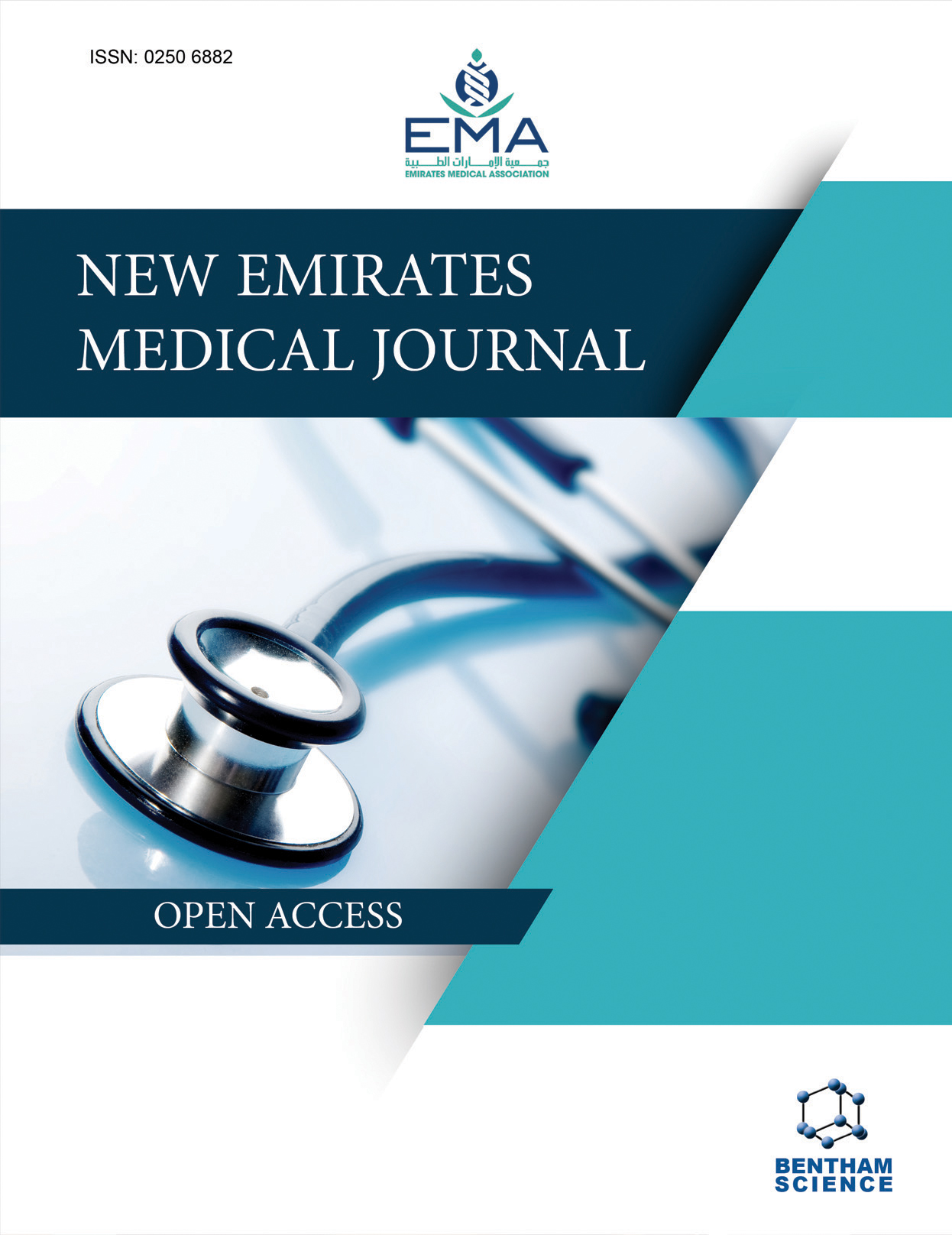-
oa Stress Level of Parents of Children Diagnosed with Attention-deficit/ Hyperactivity Disorder (ADHD) in Dubai, United Arab Emirates
- Source: New Emirates Medical Journal, Volume 4, Issue 2, Sep 2023, e170323214707
-
- 26 Nov 2022
- 06 Mar 2023
- 29 Mar 2023
Abstract
Attention-deficit/ hyperactivity disorder (ADHD) is a neurodevelopmental disorder that starts during childhood. It is commonly associated with elevated levels of parenting stress. This study aimed to examine parents’ stress levels, potential contributing factors, as well as changes associated with the COVID-19 pandemic.
This study was based on a cross-sectional design. The target population was parents of children with ADHD aged 6-18 years who were evaluated in a tertiary care hospital in Dubai, United Arab Emirates (UAE) from January 2018 to August 2021. Participants completed a survey, which gathered information on the child’s personal characteristics and medical history as well as the parents’ and family characteristics. Additionally, the parents stress level was evaluated using the English and Arabic-translated versions of the Perceived Stress Scale (PSS).
Parents of 103 children diagnosed with ADHD participated in this study. Most children were males (74.8%), and their mean age was 10.0 ± 3.4 years. Most children had ADHD as a primary diagnosis (87.4%), with ADHD subtypes being mainly combined presentation (60.2%), followed by a predominately inattentive presentation (35.9%). Psychiatric morbidity was present in 87.4% of the children, mainly learning disorders (41.7%), conduct disorder (34%), or autism spectrum disorder (24.3%). On the other hand, physical disorders were present in 68.9% of the children. Parents’ perceived stress levels differed significantly according to their children’s ADHD subtypes (p=0.002), with the highest stress levels among parents of children with predominately hyperactive/impulsive ADHD. PSS scores were moderate in 62.1% of the sample and high in 32% of the sample. Significant associations with elevated PSS scores was found in the presence of comorbid tic disorders (p<0.001) as well as in comorbid autism spectrum disorder (p=0.029). The most frequently reported items on the PSS were: being upset because of something that happened unexpectedly; feeling nervous and stressed; being angered because of things that were outside of your control; feeling unable to control important things in life; and feeling that difficulties were piling up so high that could not be overcome. Various changes were reported during the COVID-19 pandemic, which included a significant decrease in social activities (31.1%), time spent with friends (26.2%), conflicts between the child and siblings (18.5%), and conflicts between parents (25.3%). Furthermore, a significant increase was reported in children’s average screen time (28.2%), the quality of the child’s relationship with parents (19.4%), and the overall stresses faced by the family (16.5%).
ADHD is commonly associated with high levels of parental stress. Factors associated with an increased level of stress include ADHD predominantly hyperactive/ impulsive subtype as well as comorbidity with tic disorders or autism spectrum disorder. Furthermore, the COVID-19 pandemic had a marked impact on children with ADHD and their families’ social functioning.


